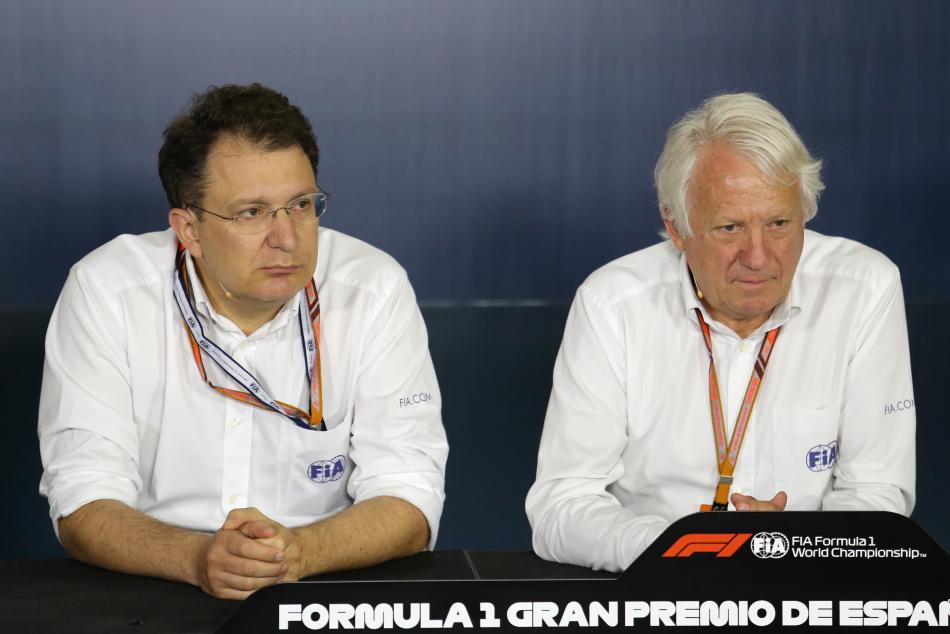F1 to outlaw copycat cars
 |
| Nikolas Tombazis (L) with the late Charlie Whiting |
Formula 1 plans to outlaw copycat designs from next year to prevent any more teams following Racing Point's lead and cloning a rival's design concept according to Autosport.
Nikolas Tombazis, the FIA's head of single-seater matters, says that motor racing's governing body, and F1's commercial rights holders, have agreed that allowing team to pursue car clones in the future would not be a good move.
Therefore, amendments to the 2021 regulations are now being planned that will limit just how much one team will be able to copy from another.
"We do plan with very short notice to introduce some amendments to the 2021 sporting regulations that will prevent this becoming the norm," Tombazis told Autosport.
"This will prevent teams from using extensive part of photos to copy whole portions of other cars in the way that Racing Point has done.
"We will still accept individual components to be copied in local areas, but we don't want the whole car to be fundamentally a copy of another car."
"We will be providing guidance about that, as well as the ruling and the wording itself over the next weeks," he said.
"We want to give a very strong message to teams that they should not be starting doing that now for next year's car, because that will simply not be allowed.
"It will be of course accepted that teams, whatever they have now in the 2019/2020 cars, they are not supposed to delete it or start afresh because that is never how it works."
"Copying has been taking place in Formula 1 for a long time," he said.
"People take photos and sometimes reverse engineer them and make similar concepts.
"In some areas, [they are] even identical concepts or closely identical as other teams. We do not think that this can stop in the future completely.
"But what we do think is that Racing Point took this to another level. They clearly decided to apply this philosophy for the whole car.
"By doing what I would call a paradigm shift: they actually use a disruption in the process that has been the norm of designing a Formula 1 car in the last 40 years.
"So one should not penalize them for that because they were original in deciding to follow this approach. However, we do not think this is what F1 should become.
"We don't want next year to have eight or 10 Mercedes or copies of Mercedes on the grid where the main skill becomes how you do this process.
"We don't want this to become the normal Formula 1."
